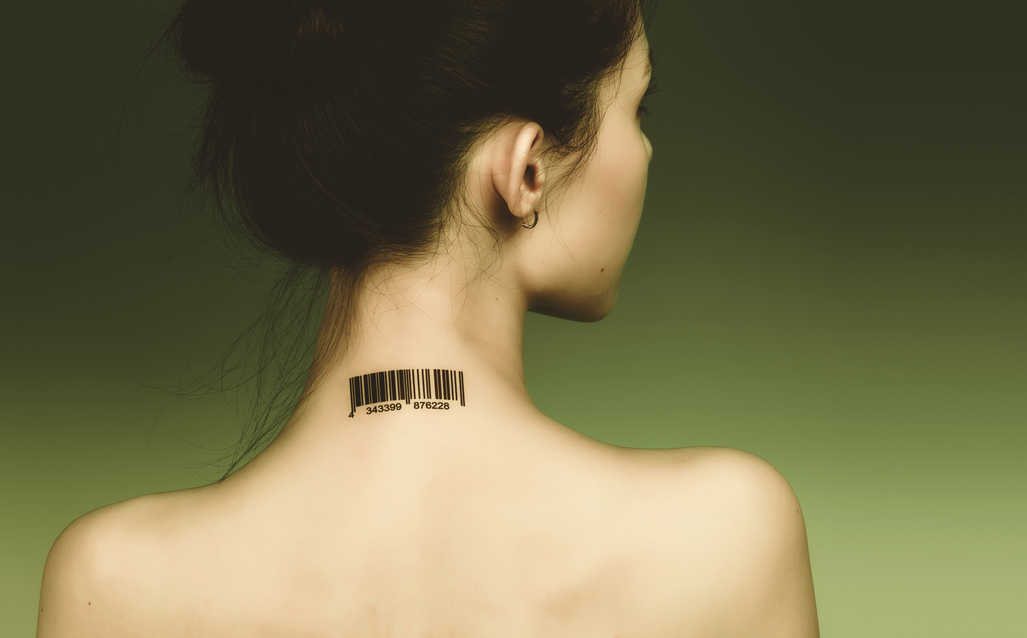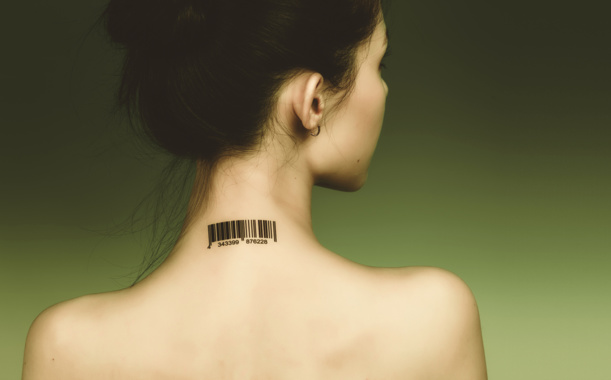Cash payments have been on a slow decline for about 20 years. One of the factors is simply that the transactions we run now have more channels through which to go, so cash has to share with its alternatives. Online shopping has been constantly increasing, ever since the Internet was created. And because our incomes have unfortunately not increased in a similar fashion, that means some of the purchases we used to make with cash are now being made electronically. That part is not a problem, it is the simple evolution of the global market. But also, that’s not the only reason why cash is on the run. Big players on the field want cash out.
Who’s doing this? States, a little bit. And banks and online payment operators, a lot. States are the suppliers of money, banks are the managers, while you and I are the users. The suppliers would like to supply less cash, in order to unload a heavy burden. The managers would like to manage less cash, as they consider it unprofitable and leaves them out of the financial operations (unless you call your bank when you go shopping to tell them what you bought with the cash you just drew from the ATM – but that’s unlikely). So, that leaves us, the users, to use cash less.
Criminal and terrorist organizations are known to use cash so as to avoid leaving computer trails (which are induced with any other type of payment), which could reveal the links between network members. With enough work from governmental agencies, the entire organization could be exposed. However, this is judging a system by its misuse, because most of the “cash world” is healthy and legal. In addition, even criminal and terrorist have limited use of cash, as they use screen companies and complex networks to complicate the money trail which could lead the authorities to them. Using false identities, shell companies are created for a very short time-span.
And whatever money could be recouped from criminal organizations commiting cash fraud, is slowly dwindling in the face of rapidly rising cyber-security costs. Home Depot learned the hard way, in the wake of it September 2014 cyber-attack : “According to new data, the breach has already cost Home Depot $232 million and is anticipated – by some accounts – to reach into the billions before the episode is over”, said Caitlin Bronson, from the Insurer.
While the motives from banks and governments are perhaps not directly hostile to us, they still blatantly disregard our end of the bargain; which isn’t good news for civil liberties.
It’s not efficient. Fraud has very easily moved out of the cash world into the electronic world, as the wealth slowly transferred, to the extent that banks are starting to deploy large-scale efforts and counter-measure to tackle the problem. Symantec commented in 2014 that “Directed attacks and data breaches also grew. Five out of six large companies were targeted by cybercriminals, a 40% rise on the previous year. The mining industry was the world's most targeted sector.” And given how international terrorist networks have become, they use the banking system in a large part of their operations, not cash, which is too risky, visible and slow to transport over long distances. So depriving these networks of cash will have little or no effect on peace and law enforcement. If it did, they would simply resort to online currencies, such as bitcoins, over which governments have no control.
It is also worth noting that terrorist attacks on our societies are not always physical : over the years, terrorist cells have acquired substantial cyber-warfare capacities and shown their capacity to breach and disrupt networks. The disappearance of cash would therefore leave our economies completely exposed to cyberattack-related lockdowns. In 2015, US officials said: “Though crippling attacks for now remain beyond the reach of the Islamic State of Iraq and the Levant, also known as ISIL, its hackers have tried to penetrate computers that regulate the nation’s electricity grid”. Their skills are only burgeoning but mounting fast and looking for breaches, such as the comprehensive inclusion of western economies within the computerized galaxy.
Terrorists aim at the destruction of our societies. Because they cannot do it with conventional, kinetic ways, for lack of military power, they attempt to undermine them, corrupt them and choke them. The strategy is quite clever, and therefore dangerous: either we live under their dictatorship, or we suppress all our liberties and democratic so as to protect ourselves, and we have placed ourselves under tyranny. Both ways, they win: our free societies are dead. Destroying the last payment method which is free, un-monitored, and unregulated, severely depletes our own society, and our freedom, which is precisely what they want. Their intent is to cow us into locking ourselves up.
It sends a terrible message to our opponents: it says that we are struggling. If we were to accept this deletion of cash, our enemies would be quick to do the math. We would be destroying our economic freedom in a dramatic sacrifice of liberty, only for a few crumbs of very dubious security, which they will easily circumvent.
The reasons for suppressing cash are political and economic. But they forget that our political and economic structures were built in order to enhance and protect our lives and livelihood, not destroy them. If he were still amongst us, Benjamin Franklin would tell us, once again, that: “Those who would give up essential Liberty, to purchase a little temporary Safety, deserve neither Liberty nor Safety, and will eventually lose both”.
* Opinion piece by Mark Zeller
Who’s doing this? States, a little bit. And banks and online payment operators, a lot. States are the suppliers of money, banks are the managers, while you and I are the users. The suppliers would like to supply less cash, in order to unload a heavy burden. The managers would like to manage less cash, as they consider it unprofitable and leaves them out of the financial operations (unless you call your bank when you go shopping to tell them what you bought with the cash you just drew from the ATM – but that’s unlikely). So, that leaves us, the users, to use cash less.
Criminal and terrorist organizations are known to use cash so as to avoid leaving computer trails (which are induced with any other type of payment), which could reveal the links between network members. With enough work from governmental agencies, the entire organization could be exposed. However, this is judging a system by its misuse, because most of the “cash world” is healthy and legal. In addition, even criminal and terrorist have limited use of cash, as they use screen companies and complex networks to complicate the money trail which could lead the authorities to them. Using false identities, shell companies are created for a very short time-span.
And whatever money could be recouped from criminal organizations commiting cash fraud, is slowly dwindling in the face of rapidly rising cyber-security costs. Home Depot learned the hard way, in the wake of it September 2014 cyber-attack : “According to new data, the breach has already cost Home Depot $232 million and is anticipated – by some accounts – to reach into the billions before the episode is over”, said Caitlin Bronson, from the Insurer.
While the motives from banks and governments are perhaps not directly hostile to us, they still blatantly disregard our end of the bargain; which isn’t good news for civil liberties.
It’s not efficient. Fraud has very easily moved out of the cash world into the electronic world, as the wealth slowly transferred, to the extent that banks are starting to deploy large-scale efforts and counter-measure to tackle the problem. Symantec commented in 2014 that “Directed attacks and data breaches also grew. Five out of six large companies were targeted by cybercriminals, a 40% rise on the previous year. The mining industry was the world's most targeted sector.” And given how international terrorist networks have become, they use the banking system in a large part of their operations, not cash, which is too risky, visible and slow to transport over long distances. So depriving these networks of cash will have little or no effect on peace and law enforcement. If it did, they would simply resort to online currencies, such as bitcoins, over which governments have no control.
It is also worth noting that terrorist attacks on our societies are not always physical : over the years, terrorist cells have acquired substantial cyber-warfare capacities and shown their capacity to breach and disrupt networks. The disappearance of cash would therefore leave our economies completely exposed to cyberattack-related lockdowns. In 2015, US officials said: “Though crippling attacks for now remain beyond the reach of the Islamic State of Iraq and the Levant, also known as ISIL, its hackers have tried to penetrate computers that regulate the nation’s electricity grid”. Their skills are only burgeoning but mounting fast and looking for breaches, such as the comprehensive inclusion of western economies within the computerized galaxy.
Terrorists aim at the destruction of our societies. Because they cannot do it with conventional, kinetic ways, for lack of military power, they attempt to undermine them, corrupt them and choke them. The strategy is quite clever, and therefore dangerous: either we live under their dictatorship, or we suppress all our liberties and democratic so as to protect ourselves, and we have placed ourselves under tyranny. Both ways, they win: our free societies are dead. Destroying the last payment method which is free, un-monitored, and unregulated, severely depletes our own society, and our freedom, which is precisely what they want. Their intent is to cow us into locking ourselves up.
It sends a terrible message to our opponents: it says that we are struggling. If we were to accept this deletion of cash, our enemies would be quick to do the math. We would be destroying our economic freedom in a dramatic sacrifice of liberty, only for a few crumbs of very dubious security, which they will easily circumvent.
The reasons for suppressing cash are political and economic. But they forget that our political and economic structures were built in order to enhance and protect our lives and livelihood, not destroy them. If he were still amongst us, Benjamin Franklin would tell us, once again, that: “Those who would give up essential Liberty, to purchase a little temporary Safety, deserve neither Liberty nor Safety, and will eventually lose both”.
* Opinion piece by Mark Zeller


 Cashless economy to fight crime and terrorism: how far are we willing to go?
Cashless economy to fight crime and terrorism: how far are we willing to go?





 Companies
Companies